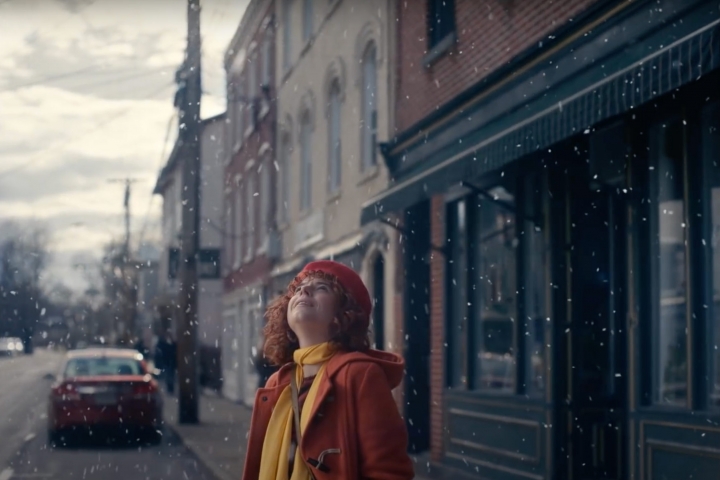
“It stays, it sticks, it lingers, it dominates …”
These words are spoken by Jessie Buckley’s (“Judy”) character in the Netflix original film “I’m Thinking of Ending Things.” In the context of the film, this refers to the thought of ending things, but the line just as easily applies to the way “I’m Thinking of Ending Things” imprints itself on the viewer.
Ostensibly, the premise isn’t as dark as one might assume. Buckley’s character is a young professional (or an artist … or a student … or a waitress … more on that in a bit) on a road trip to meet the parents of her nascent sweetheart Jake (Jesse Plemons, “Antlers”), the “proverbial next step” in their relationship. Only problem is, she can’t quite shake the interminable hankering to end things.
The other problem, at least from the audience’s perspective, is that reality seems to be hanging pretty loosely.
“I’m Thinking of Ending Things” is not only an adaptation of novelist Ian Reid’s psychological thriller of the same name but the latest addition to surrealist writer-director Charlie Kaufman’s (“Anomalisa”) filmography, so the film’s loose grip on reality should come as no surprise.
The word that comes to mind is “slippage.” Details in the movie are slippery — infirm and subject to change without fanfare or notice. I’ve only referred to the main character as “Jessie Buckley’s character,” as her name is hard to pin down — we meet her as Lucy, but sometimes it’s Lucia, sometimes Louisa, sometimes as dissimilar as Ames or Yvonne. The nature of her profession is amorphous, as alluded to earlier. The couple’s meetcute is told and retold in different ways, characters’ ages shift dramatically and Jake’s parents’ (Toni Collette, “Hereditary,” and David Lewis, “Wonder Woman”) behavior is just a tad off in truly uncanny fashion. In one nondescript scene, “Jessie Buckley’s character” isn’t even played by Jessie Buckley at all — Colby Minifie (“Submission”) quietly slipping in to assume the role for a brief moment.
But of course, none of this slippage registers for the characters. One might be tricked into believing this a horror-type film — it’s got the creepy house, the remote location made even more inaccessible by wintry conditions, a scratched-up basement door sealed by duct tape and a primed and perfect final girl candidate. But it’s not! Unsettling, creepy — sure, but it’s all non-diegetic. Characters are as nonplussed by the slippery nature of their world as Shaggy is that Scooby can talk.
All this slippage has a more or less (emphasis on the ‘more or less’) definitive reason — but to reveal it would take away half the fun … as well as half the frustration. If it hasn’t been made explicit yet, “I’m Thinking of Ending Things” is bizarre. It’s engrossing — the 134-minute runtime feels like maybe three quarters of that — but deeply bizarre and largely inaccessible. The profundity and offbeat outlandishness of the film advance in sync as the film progresses, starting off relatively mundane and slowly metamorphosing into a surreal, medium-bending third act that will leave many viewers wondering why “I”m Thinking of Ending Things” didn’t end things sooner.
For fans of Kaufman or the eponymous novel, or those that find themselves more engrossed than rebuffed, the film offers a rich and unusual experience that almost demands revisiting. Like much of Kaufman’s work, “Ending Things” is something of a meditation on the human condition and the connections between people. The “Things” being ended aren’t necessarily just amorous — journeys end, days end and, of course, lives end. The film stays and sticks and lingers as you try to needle out those meditative riddles — maybe an effort in lunacy, but compelling all the same.
Daily Arts Writer Jacob Lusk can be reached at luskja@umich.edu.

